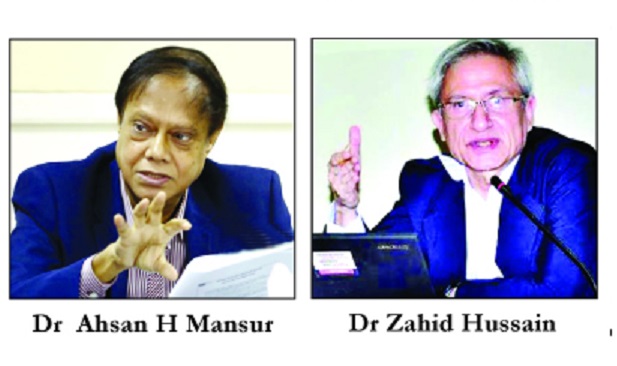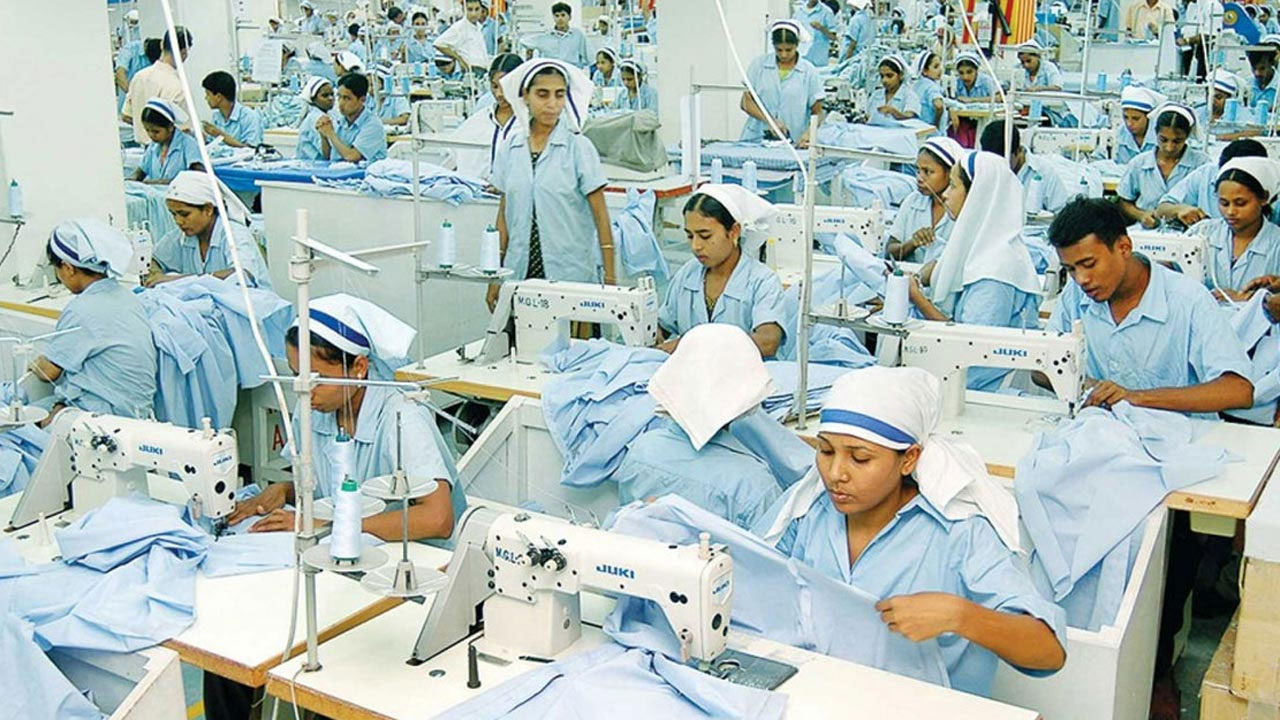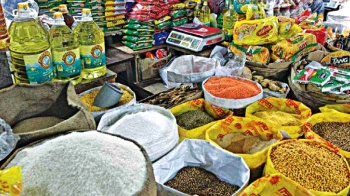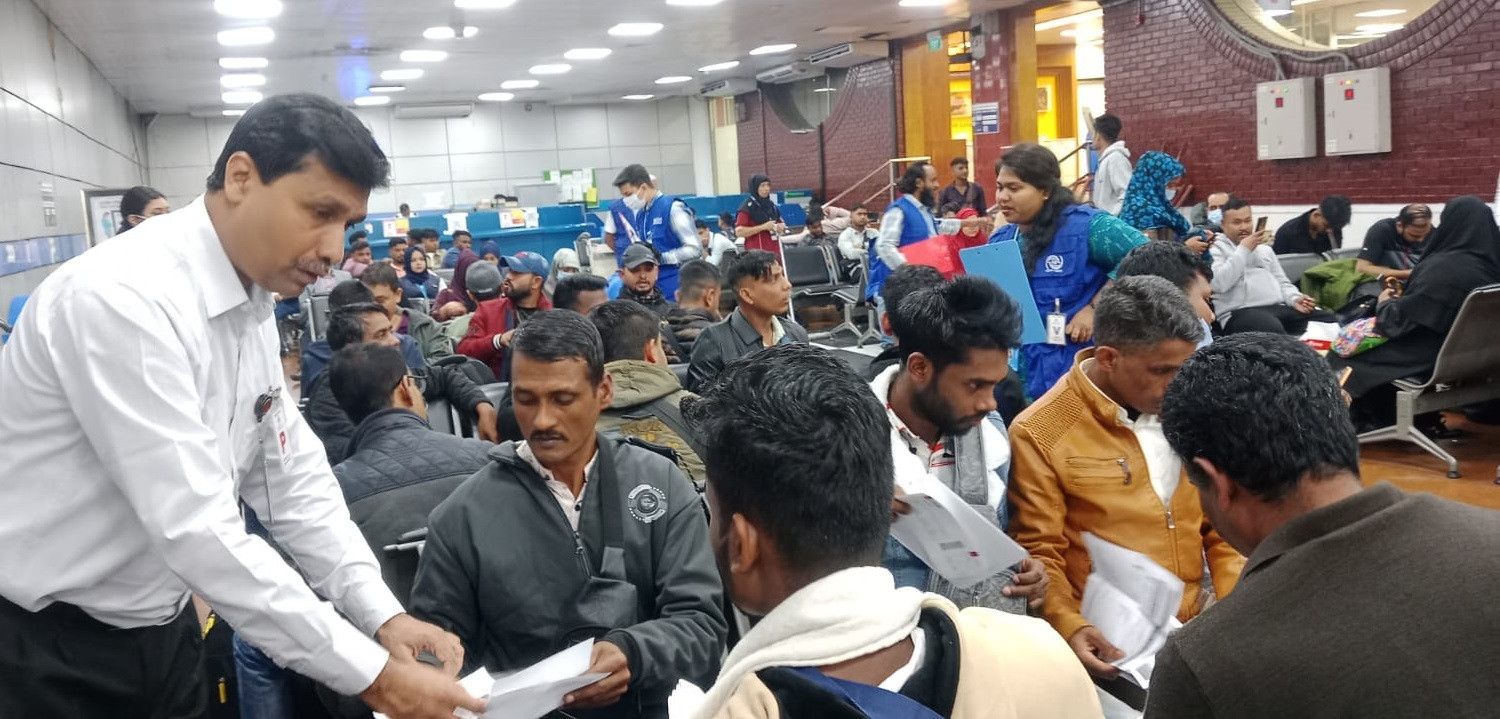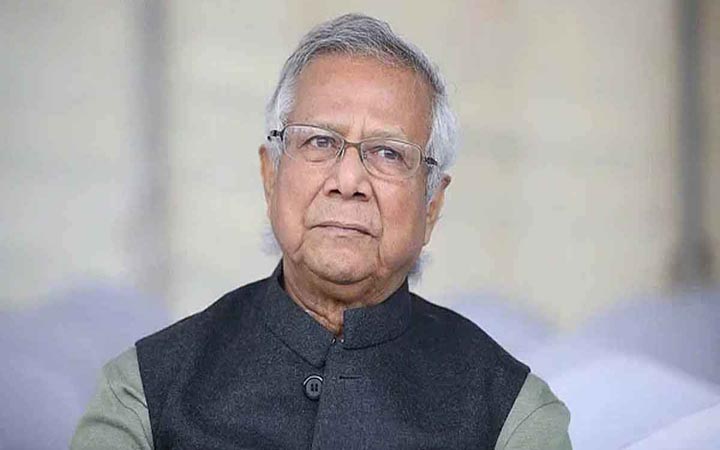Bangladesh's economy grew last fiscal year at the slowest pace in 18 years due to Covid-19 pandemic.
The world's 41st largest economy expanded by 5.24 per cent in the fiscal year 2019-20, according to the provisional estimation of Bangladesh Bureau of Statistics (BBS).
"Bangladesh is facing a major economic crisis caused by Covid-19 pandemic. The debilitating effects of the pandemic have been felt on all sectors of the economy and thus lowered the GDP growth," Dr Ahsan H Mansur, Executive Director, Policy Research Institute of Bangladesh (PRI), told on Tuesday.
He observed the domestic economy gets a new start after months long lockdowns to deal with the Covid-19 pandemic. "This is just the start and the recovery is going to be very slow. The economy is unlikely to return to pre-pandemic levels before 2021," he added.
Dr Mansur, a former economist of International Monetary Fund (IMF), noted that the country's export earnings have increased in July due to shipment of goods from the orders that have halted or cancelled during March to June period of this year. But a sustainable export growth will depend on the recovery of the global economy and also the revival of economies in the Europe and America, two major export markets for Bangladeshi goods.
He also said that the contribution of merchandise exports to the country's GDP is 10 per cent. But the other key sectors that contribute most (90 per cent) to the country's GDP faced severe blow owing to the Covid-19 induced economic disruptions.
The IMF earlier predicted that Bangladesh's GDP growth would come down to 2 per cent in the fiscal year 2019-2020 due to the global coronavirus pandemic.
"Despite some signs of recovery, the global economy faces continued challenges, including the possibility of a second wave of Covid-19.
The virus is yet to contain in Bangladesh. It also faces the imminent challenge of second wave of the disease that could lead to further disruptions in economic activities," warned Dr Mansur.
In the last one decade, Bangladesh has seen average economic growth of around 7 per cent a year, although experts have regularly questioned the accuracy of its economic data.
"Bangladesh's GDP growth fell to 5.24 per cent in the last fiscal year, the worst figure since the fiscal year 2001-02. The GDP contraction was expected as the virus severely disrupted economic activities here like in most other nations," World Bank's former economist Dr Zahid Hussain told The New Nation.
The World Bank in its June 2020 Global Economic Prospects report projected that Bangladesh's GDP growth may come down to 1.6 per cent in the FY 20 ending on June 30.
"The coronavirus pandemic is set to bring down the country's GDP growth from an all-time high 8.15 per cent recorded in the fiscal year 2018-19 to straight 1.6 per cent in the fiscal year 2019-20," said the report.
Dr Zahid said Bangladesh economy had ground to a halt after the authorities announced nationwide shutdown on March 26 aimed at slowing down the spread of the highly contagious disease. It also forced factories and businesses to close.
"The economic impact has been felt in broad economic sectors after the shutdown announced. It hit most the informal sector, which accounts for almost 80-90 per cent of the jobs in Bangladesh," he said.
Dr Zahid also mentioned that the Covid-19 pandemic had strongly impacted exports of ready-made garments, which represented more than 80 per cent of Bangladesh's exports, factory output, retail sales, consumer spending, and jobs. "All these development dragged down the economic growth," he added.
When asked, Dr Zahid said, "The GDP growth is totally irrelevant to the current situation. The most important aspect right now is survival."
Both the economists, however, expressed skepticism about the effectiveness of the stimulus package announced by the government to stabilise Bangladesh economy from pandemic shocks citing that the slow disbursement of stimulus funds will affect businesses and enterprises.
They added, the pandemic translates into permanent income and job losses to thousands of workers in the informal sector, and closures to business enterprises especially SMEs across the country.
"The economic recovery will be fragile unless the virus is contained, factories and enterprises resume full-scale operation with restoration of jobs to pre-lockdown levels," said Dr Mansur.
According to the Bangladesh Bureau of Statistics (BBS), 20.5 per cent of the population lives below the poverty line that is about 3


